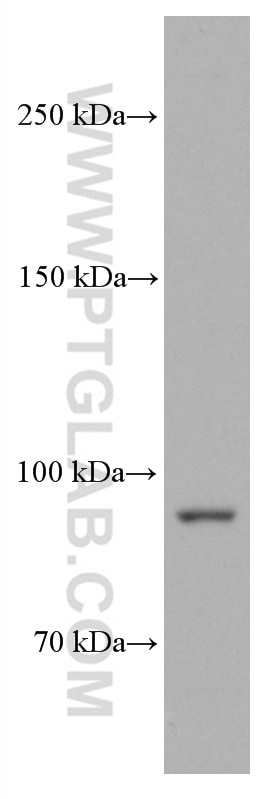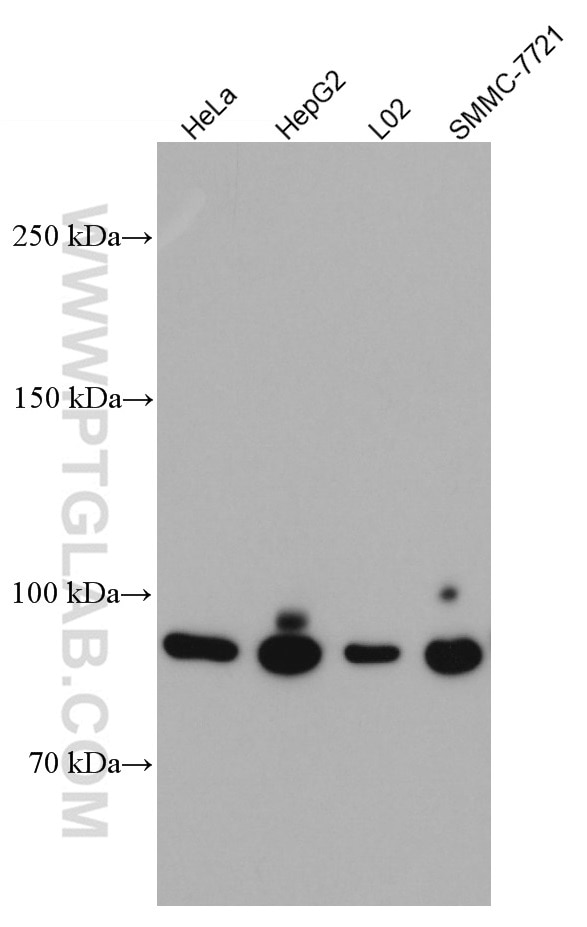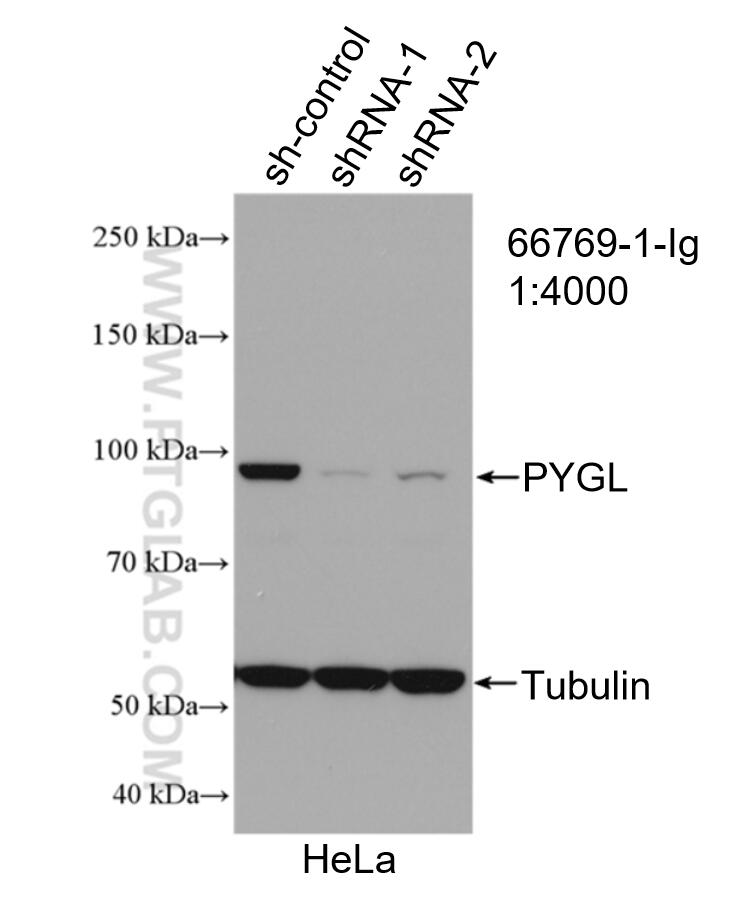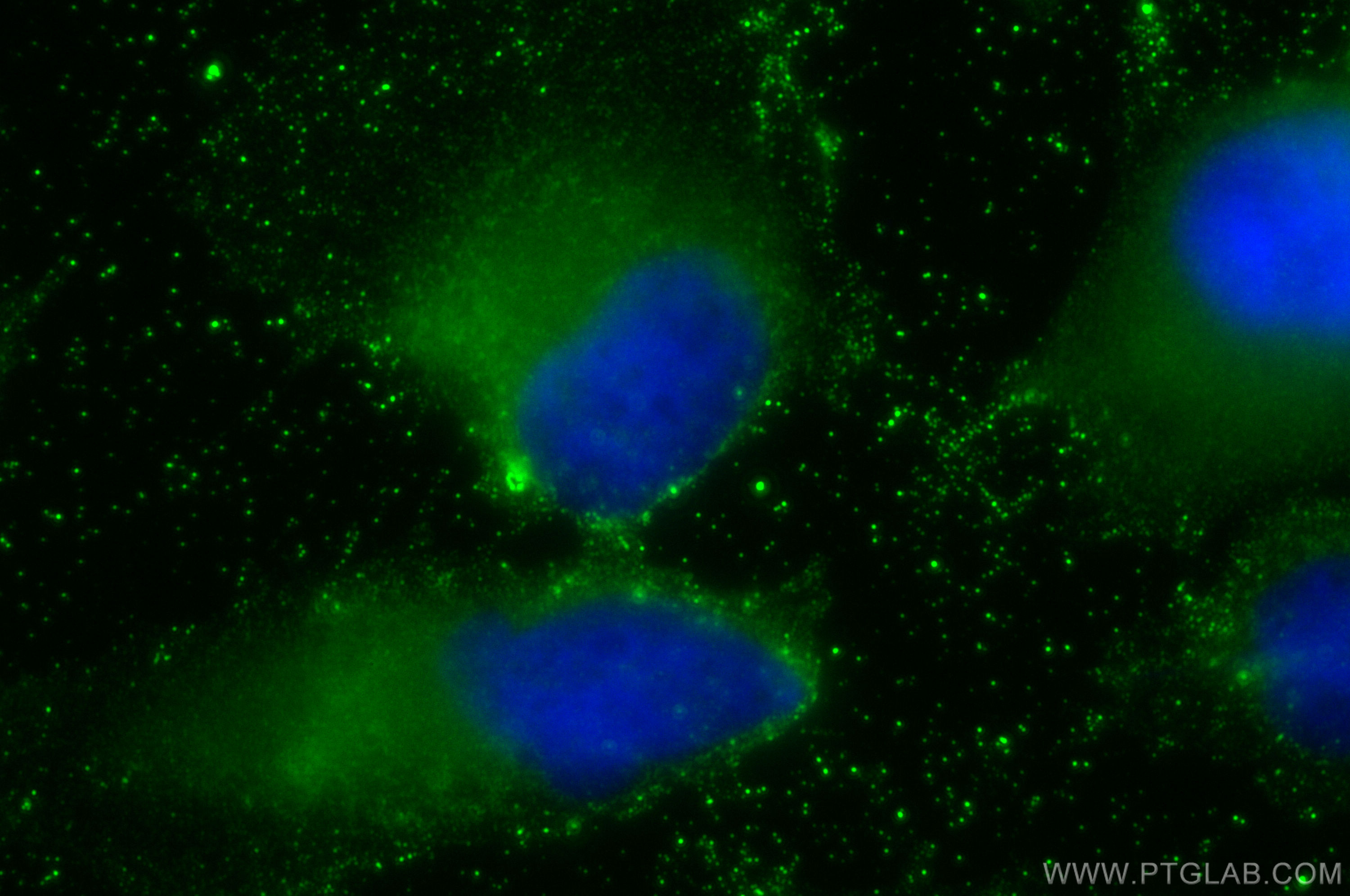Product Information
66769-1-PBS targets PYGL in WB, IF/ICC, Indirect ELISA applications and shows reactivity with human, rat samples.
| Tested Reactivity | human, rat |
| Host / Isotype | Mouse / IgG1 |
| Class | Monoclonal |
| Type | Antibody |
| Immunogen |
CatNo: Ag8550 Product name: Recombinant human PYGL protein Source: e coli.-derived, PET28a Tag: 6*His Domain: 499-846 aa of BC009895 Sequence: GLAELIAEKIGEDYVKDLSQLTKLHSFLGDDVFLRELAKVKQENKLKFSQFLETEYKVKINPSSMFDVQVKRIHEYKRQLLNCLHVITMYNRIKKDPKKLFVPRTVIIGGKAAPGYHMAKMIIKLITSVADVVNNDPMVGSKLKVIFLENYRVSLAEKVIPATDLSEQISTAGTEASGTGNMKFLNGALTIGTMDGANVEMAEEAGEENLFIFGMRIDDVAALDKKGYEAKEYYEALPELKLVIDQIDNGFFSPKQPDLFKDIINMLFYHDRFKVFADYEAYVKCQDKVSQLYMNPKAWNTMVLKNIAASGKFSSDRTIKEYAQNIWNVEPSDLKISLSNESNKVNGN Predict reactive species |
| Full Name | phosphorylase, glycogen, liver |
| Calculated Molecular Weight | 846 aa, 97 kDa |
| Observed Molecular Weight | 97 kDa |
| GenBank Accession Number | BC009895 |
| Gene Symbol | PYGL |
| Gene ID (NCBI) | 5836 |
| RRID | AB_2882115 |
| Conjugate | Unconjugated |
| Form | Liquid |
| Purification Method | Protein G purification |
| UNIPROT ID | P06737 |
| Storage Buffer | PBS only, pH 7.3. |
| Storage Conditions | Store at -80°C. |
Background Information
Glycogen phosphorylase L (PYGL) is one of the gene related to hypoxia metabolism and was found to be up-regulated in head and neck squamous cell carcinomas (HNSCCs) and breast cancers. Glycogen synthases (GSs) and glycogen phosphorylases (GPs) catalyze the key steps of glycogen synthesis and breakdown, while glycogen phosphorylase has three isoforms: PYGM (muscle), PYGL (liver), and PYGB (brain) (PMID: 37063425, 9529348). High PYGL expression plays an independent role in predicting the poor prognosis of glioma patients (PMID: 34177761).










